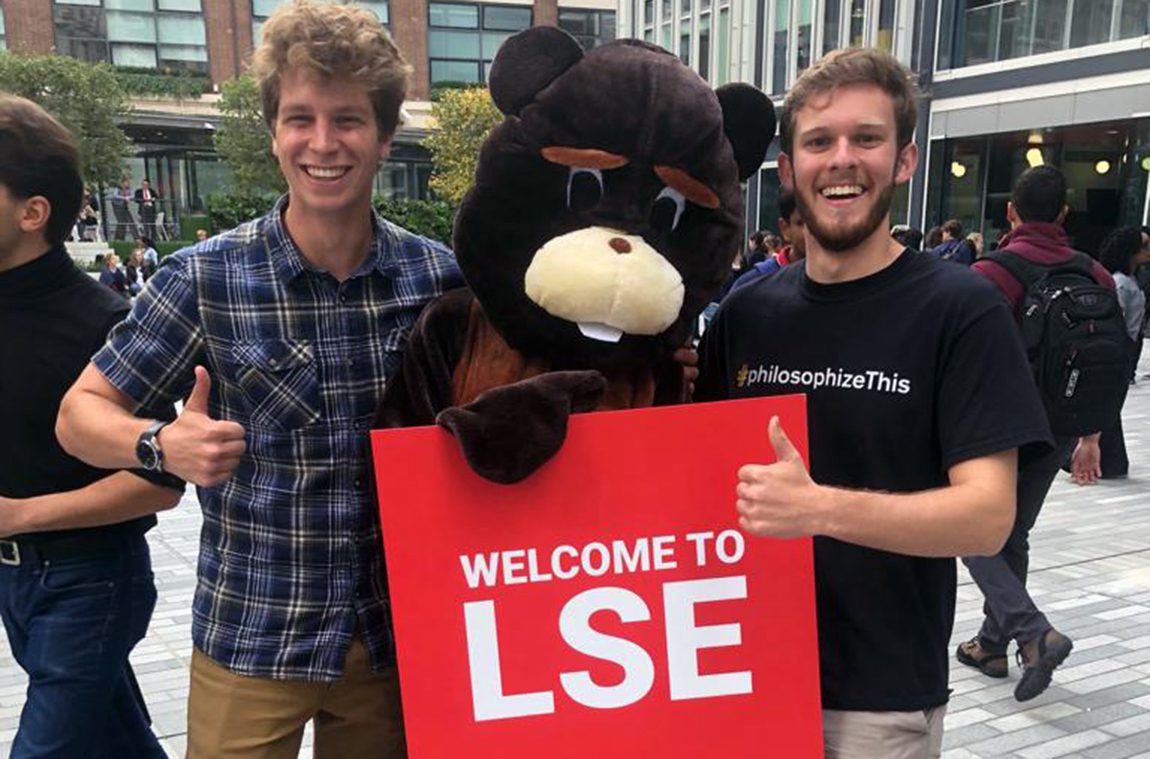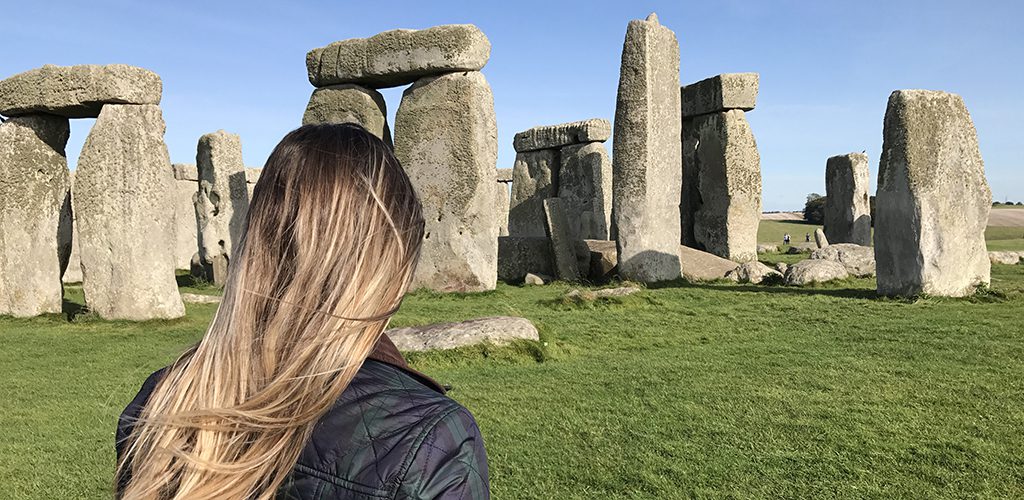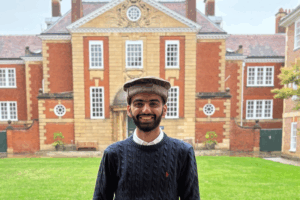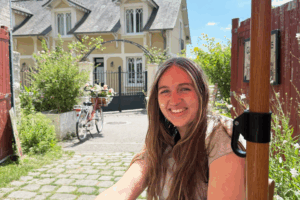London, England
London School of Economics and Political Science Partnership
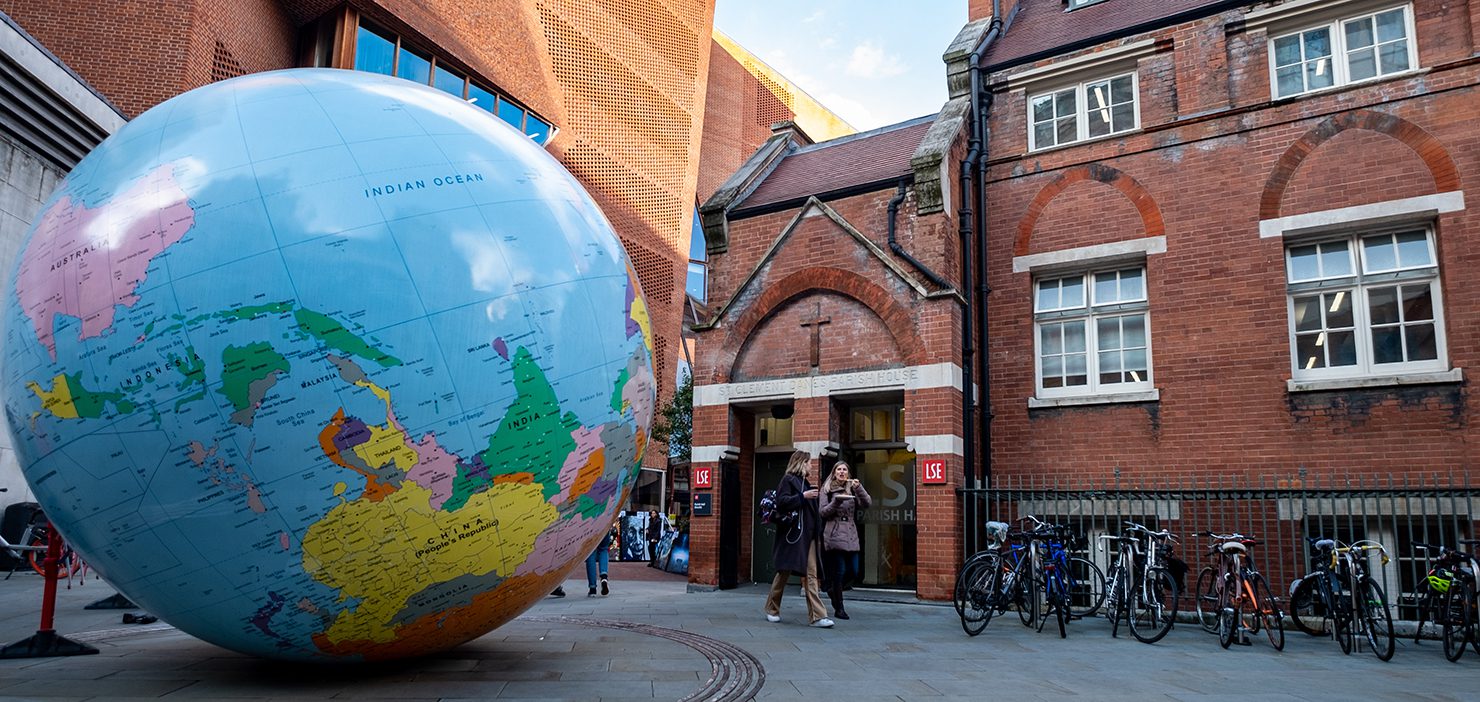

Program Overview
AN INTERNATIONAL HOTSPOT FOR REAL-WORLD DISCUSSION AND RESEARCH
Tackle real-world issues and debate with peers who bring perspectives from 160+ countries in this challenging program.
In the heart of central London, LSE is the UK’s first university to earn carbon neutral certification and Britain’s only university to specialize in social sciences. An impressive 37 world leaders have taught or studied here. As an LSE student, you have access to university facilities, plus links to London business, government, law, and media.
The LSE campus is at the heart of the city, near the West End, Royal Courts, and King’s College London. It’s also close to vibrant, bustling Soho, where you can enjoy world-class restaurants, lively nightlife and excellent shopping.
Your program also includes IFSA excursions and activities (no extra fees!) for insights tourists often miss. Possibilities include a West End theater performance, a chance to try your hand in the Big London Bake experience, and exploring below ground with a former coal miner in Wales.
Details at a Glance
Application deadline
Minimum GPA
3.30
Credit load
32
Housing
Apartment/Flat, Residence Hall/Dormitory, Single Room Option
Instruction language
English
Language prerequisites
None
Visa required?
Yes. Learn more.
Academics
To view available courses at LSE, visit the LSE online course catalog.
When choosing your department of study and courses, please consider the following:
- Students who are admitted into the economics department are required to take at least two courses in that department. All other departments at LSE require students to take at least one course in their home department.
- Qualitative departments at LSE require students to have at least a 3.3 GPA.
- Quantitative departments at LSE require students to have at least a 3.5 GPA.
- Students applying to the economics department should already have completed three to four economics courses, including microeconomics and macroeconomics. Students should have also completed two to three math and/or statistic courses.
At LSE, a full course load consists of year-long courses that are 4 full units total, equaling 32 U.S. semester credit hours per year.
CHART Your Course
Find the classes you need fast with CHART. Our easy-to-use tool shows you classes recently taken by IFSA students
Lab & Field Trip Fees
Please review syllabi and course materials when registering for direct-enroll classes. Certain classes may have a one-off lab or field trip fee disclosed in the syllabus or during the first meeting of the class. These fees are not included in your IFSA program fee. You will be responsible for these fees, whether they are billed and paid by IFSA or billed to you.
GPA REQUIREMENTS
- Qualitative departments at LSE require students to have at least a 3.3 GPA.
- Quantitative departments at LSE require students to have at least a 3.5 GPA.
CLASSES
In selecting your classes, you should be aware of any prerequisites in order to be eligible to enroll. In addition, because of the tightly constrained nature of degree regulations at LSE, many 300-level classes have “unspoken” or “assumed” prerequisites where the material covered in 200-level classes is simply taken as a “given” starting point for the 300-level class. This means that general course students predominantly take 200-level classes, and it is not recommended students take more than one or two 300-level classes.
- 100-level courses are introductory classes suitable for students with no previous undergraduate study in the subject. These are typically taken by LSE students in their first year of study.
- 200-level courses are intermediate classes broadly equivalent to junior year classes in the U.S. These are typically taken by LSE students in their second and final years.
- 300-level courses are advanced classes equivalent to senior year or master’s courses in the U.S. These are typically taken by LSE students in their final year. Please note that LSE will not admit visiting students into 300-level classes without extensive background in the subject.
ECONOMICS DEPARTMENT
- Students who are admitted into the Economics Department are required to take at least two classes in that department. All other departments at LSE require students to take at least one class in their home department.
- Students applying to the economics department should already have completed three to four economics classes, including microeconomics and macroeconomics. Students should have also completed two to three math and/or statistic classes.
New country, new way of learning!
Here’s what to expect at London School of Economics and Political Science:
- More emphasis on independent learning. The university recommends completing 10 hours of independent study for each academic credit you seek.
- More advanced instruction and work than you’d find in a class at the same level in the United States. Because most English university degrees are three-year programs, students gain specialized knowledge faster here.
- Less personal access to professors. Instead, it’s common to connect with more junior faculty members.
- At LSE, grades are often based on a single final exam or final paper, or on just a few assignments. General Course students receive two grades on their LSE transcript: a Class Grade and an Exam Grade. IFSA averages the two grades to produce your IFSA transcript.
- Choose classes from one department to avoid scheduling conflicts. Local students usually specialize in one department for classes, which means different departments don’t schedule classes with other departments in mind.
- Full access to the university’s robust academic support system and resources, including an assigned advisor for academic support. IFSA local staff are also available for individual help.
APPLICATION REQUIREMENTS
Eligibility
- You must be at least 18 years of age. Students under 18 may be accepted on a case-by-case basis.
- You must be currently attending or recently graduated from a U.S. or Canadian community college, technical college, two-year college, four-year college, or four-year university.
- You must have completed at least two (2) full-time years of study at their home institution before the beginning of the term.
- Eligibility requirements can vary among host institutions. Please ask your IFSA Enrollment Counselor for specific information.
Recommendation Letters
Your application to this program will require one (1) academic letter of recommendation.
TRANSCRIPT
Upon completion of your program, IFSA will send an official Butler University transcript to your home university with your coursework converted to the U.S. semester credit hour system. You will also have access to an unofficial transcript in your IFSA Student Portal. The transcript reflects classes taken, credits attempted, and grades earned during your term abroad. This service is included in your study abroad program at no additional cost. See our Transcripts page for more information.
Excursions
Activities and excursions are designed to pull you into the communities you visit and encourage cultural connections of every kind. There’s no extra fee to participate in these optional outings—everything is included in your program fee.
Below are a selection of activities and excursions from previous terms; options may vary for your program. Due to the seasonal nature of many of program activities, we cannot guarantee a specific activity or excursion will be available in a given term or program.
Activities
- The Big London Bake Experience: Step into the famous white tent and don your apron for this immersive baking experience. Perfect for fans of The Great British Bake Off, you’ll work in pairs and bake a dessert against the clock that will be judged by the head baker. You’ll even be able to take home your creation at the end!
- West End Theatre Performance: No time in the UK would be complete without a trip to the West End, London’s famous theatre district. Shows are chosen that provide context or different perspectives on London/the UK/Europe. Recent examples include Operation Mincemeat and Cabaret.
- Sustainability Garden: Visit a community garden started to rewild urban space and respond to the challenges of urban sustainable food production in line with the United Nation’s Sustainable Development Goals. By speaking to gardeners, learn more about the impact of sustainable practices on the biodiversity of urban areas and how they’re trying to widen participation in their local community. Make sure to dress appropriately because we’ll be getting our hands dirty!
Excursions
- Stonehenge and Bath Visit: Stonehenge has stood on Salisbury Plain for around 5,000 years and it’s still unknown how the prehistoric monument came to rest there! Make up your own mind during this visit and discover the fascinating theories behind these rocks. You’ll learn about Stonehenge from the fascinating exhibits and be able to enjoy a virtual sunrise as it rises over the prehistoric stones! Afterward, travel to the Roman city of Bath for a walking tour of this World Heritage city once home to Jane Austen, Charles Dickens, Gainsborough, Lord Nelson, and Beau Nash. Then prepare to travel back 2,000 years to the Roman era with a visit to the Roman Baths.
- Piers and Queers Brighton Trip: Since the 18th century, Brighton has become a cosmopolitan place of recreation, escape, and freedom. A destination for people who didn’t conform. With an LGBTQ+ population now estimated at 15%, Brighton celebrated England’s first civil partnerships, and hosts the UK’s largest Pride event as well as Europe’s first Trans Pride, rightly earning its title as the LGBTQ+ Capital of Britain. Piers and Queers is a tour of Brighton from LGBTQ+ perspective. This colorful 90-minute walk along the beach and historic city center takes in more than 200 years of history including Regency Dandies, 1950s lesbian and gay life, and political activism. Afterward, there’s time for a walk on the pier and fish and chips, just watch out for seagulls!
- Big Welsh Weekend: Delve into the rich history of Wales and explore its unique culture and its complex relationship with the rest of the UK on a weekend that takes in the famous Tintern Abbey, the historic Raglan Castle, the Blaenavon coal mines, and St Fagan’s, a museum that has preserved buildings and cultural practices from Welsh history. Spend the night in Cardiff, the Welsh capital, and discover the Cardiff Bay area, home of the Welsh Parliament.
- Yorkshire Adventure: Explore the vibrant and historic county of Yorkshire on a weekend trip where you’ll discover how this English region has contributed to the UK’s cultural landscape. Highlights may include the Bronte Parsonage in Haworth, the Piece Hall in Halifax, the Victorian model village of Saltaire, or the imposing Harewood House in Leeds.
Housing and Meals
Housing
Apartment/Flat, Residence Hall/Dormitory, Single Room OptionMeals
Self-CateringDetails
Students live in flats (apartments) provided by IFSA or in housing provided by LSE. Several options include supplemental housing fees. While we do our best to accommodate preferences, tight housing often makes it difficult to match students with their top choices.
LSE residence halls: Students can choose between a number of LSE’s residences. These might include Bankside, High Holborn, Roseberry Hall or Sidney Webb House. Some residences rooms are arranged in flats with shared kitchens and/or bathrooms. Other residences rooms are arranged in corridors. Students provide bedding and towels. Take a look at what each residence hall provides using this chart.
- Meals: Some residence halls offer some breakfasts and/or evening meals included, others are self-catered.
- Commute: The closest hall is a 10-minute walk from campus. The farthest hall is 30 minutes away via public transportation.
Urbanest Westminster Bridge: LSE has also partnered with an external housing provider to offer Westminster Bridge. This option includes either single bedrooms, with private or shared bathrooms, or shared (double) bedrooms and shared bathrooms. Students provide bedding and towels.
- Meals: No meal plan. Students prepare or purchase meals. Each flat has a shared kitchen, generally with refrigerator, freezer, microwave, oven, and kettle. Some require students to purchase kitchenware.
- Commute: Some buildings are within easy walking distance; others require subway transit. All locations have public transportation nearby.
Student flats provided by IFSA: Students live in furnished flats (apartments) selected by IFSA, with IFSA students as flatmates.
- Living space: Flats are either shared bedrooms with shared bathrooms, or single rooms with private bathrooms.
- Bedrooms typically include bed, desk, chair, and wardrobe.
- Comfortable space to cook, eat, socialize, and study either in your flat or in convenient common areas.
- Linens, except towels, are typically provided.
- Meals: There is no meal plan. Students cook or purchase their own meals. Some flats have private kitchens, others include shared kitchens. Most are fully equipped; if not, kitchenware is easy to purchase nearby. Flatmates say cooking and eating together is a fun, social part of their day.
- Commute: Varies by location. Expect a 40- to 50-minute trip via local train services, the Tube (the London subway), or bus.
Sample housing
Explore Vita Lewisham, one housing option, to see what your London home might be like:
- Location: Lewisham, an area in southeast London undergoing substantial regeneration, particularly following its tenure as London Borough of Culture in 2022. Lewisham Shopping Centre, a five-minute walk away, is home to over 70 stores. Across the street is Glass Mill Leisure Centre, with gym, pool, sauna, and steam room. Two-minute walk to Lewisham train station.
- Commute: 40 minutes by train/Tube to the LSE campus.
- Single rooms: Rooms include one double bed, desk, chair, wardrobe, and TV. Bed linens provided. Studio rooms include private kitchen with oven, stove, refrigerator, and microwave. Other rooms are part of cluster flats: six single rooms with private bathrooms, a shared kitchen, and living space. Kitchenware provided.
- Meals: No meal plan. Students purchase meals or prepare food in shared kitchens. Breakfast available in the reception area on weekday mornings. Free coffee 24/7.
- Common spaces: Three private dining rooms, a bar, study spaces, a gym with dance studio, and a games room.
- Other details: Unlimited Wi-Fi, staff and security on site 24/7. Laundry facilities on-site. Cleaning provided every two weeks. The residence runs a full social calendar.
- Nearby: The bustling Greenwich area, home to Greenwich Market, renowned museums, and Greenwich Park (where the Eastern and Western Hemispheres meet)—five minutes away via Docklands Light Railway. (Watch for celebrities: Greenwich frequently stands in as London and occasionally Paris in film and television productions.) Central London is 15 minutes away via train, so it’s easy to get to London Bridge and Charing Cross, the historic center of London.
Dates and Fees
Get Started
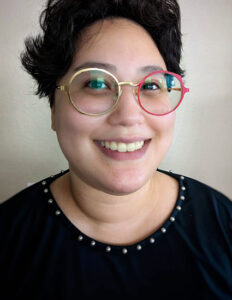
Jasmine Di Diego
Enrollment Counselor
